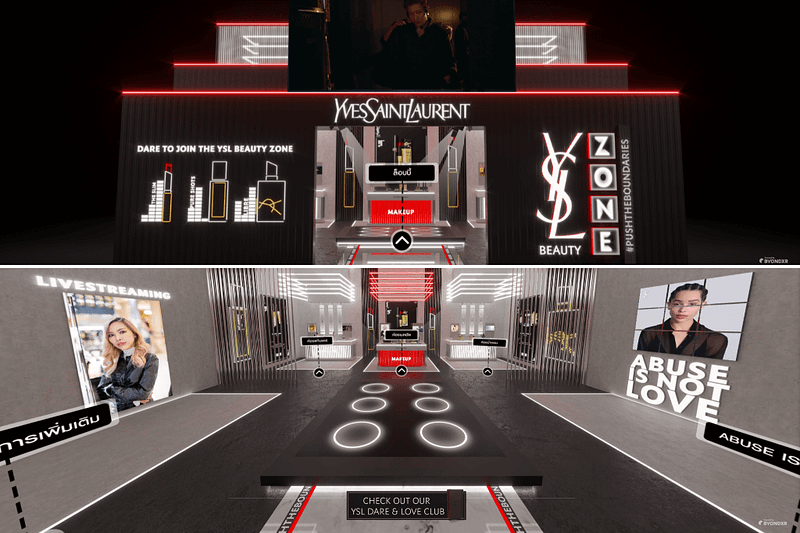The metaverse, a convergence of virtual, augmented, and physical realities, has captivated the luxury industry, presenting a frontier for innovation and growth. As of 2024, the luxury segment within the metaverse is valued at $30 billion, with a projected compound annual growth rate (CAGR) of 35% through 2030, reflecting the surging demand for digital luxury experiences and virtual goods. Millennials and Gen Z, who account for 40% of global luxury consumption, are driving this trend, seeking immersive, personalized, and interactive brand experiences that align with their digital-first lifestyles.
Competitive Landscape: Pioneering Strategies and Differentiators
Leading luxury brands have already made significant strides in establishing their presence and strategies within the metaverse. Gucci, an early mover, partnered with the popular online game Roblox to create Gucci Garden, a virtual experiential space where users can explore curated Gucci-themed environments and purchase limited-edition digital goods. Similarly, LVMH’s Louis Vuitton launched ‘Louis The Game,’ a mobile game incorporating non-fungible tokens (NFTs), while Burberry has created branded experiences within the gaming platform Minecraft, leveraging popular virtual worlds to engage younger audiences.
These brands are focusing on creating immersive virtual experiences that align with their brand identity and offer a sense of exclusivity. The use of NFTs and blockchain technology to offer limited-edition virtual goods and experiences is a key differentiator, enabling luxury brands to maintain their aura of scarcity and authenticity in the digital realm. Additionally, the integration of AI-powered virtual assistants and chatbots enhances customer engagement and loyalty, providing personalized recommendations and seamless transactions.
As more luxury brands enter the metaverse, the competitive landscape is becoming increasingly dynamic. Brands that can seamlessly integrate their physical and digital experiences while leveraging advanced technologies will have a competitive edge. For instance, Richemont, the luxury conglomerate that owns brands like Cartier and Vacheron Constantin, has invested in Farfetch’s new online marketplace for digital fashion and luxury NFTs, positioning itself at the forefront of this emerging market.
Technological Innovations Shaping the Luxury Metaverse
The rapid advancements in virtual and augmented reality (VR/AR) technologies are driving the development of innovative solutions that are shaping the luxury brand experiences in the metaverse. The use of photorealistic digital twins allows consumers to virtually try on and interact with luxury goods, such as apparel, accessories, and jewelry, before making a purchase. This not only enhances the customer experience but also reduces the environmental impact of physical product returns. Additionally, the integration of haptic feedback and other sensory experiences further elevates the virtual luxury experience, blurring the lines between the physical and digital realms.
Blockchain technology and NFTs are also playing a pivotal role in creating unique digital collectibles and experiences. These digital assets serve as proof of ownership, authenticity, and exclusivity, aligning with the core values of luxury brands. For example, Swiss watchmaker Tag Heuer has launched its own NFT collection, tapping into the growing demand for digital collectibles among affluent consumers. The integration of NFTs with metaverse platforms enables luxury brands to offer limited-edition virtual goods and even fractional ownership of physical luxury items, opening up new revenue streams and engagement opportunities.
Furthermore, advanced AI-powered virtual assistants and chatbots are transforming the luxury customer experience in the metaverse. These AI-driven solutions provide personalized recommendations, facilitate seamless transactions, and offer 24/7 support, enhancing the overall customer journey and strengthening brand loyalty. As the metaverse continues to evolve, the technological capabilities and solutions available to luxury brands will only become more sophisticated and immersive, enabling truly differentiated and engaging experiences that resonate with their discerning clientele.
Future Prospects and Strategic Implications
The integration of luxury brands into the metaverse represents a strategic shift that goes beyond mere experimentation. It is a deliberate effort to future-proof their businesses, connect with younger demographics, and unlock new avenues for growth and innovation. As the industry continues to explore and refine its metaverse strategies, the ability of luxury companies to seamlessly blend their physical and digital experiences will be a critical determinant of their long-term competitiveness and relevance.
Looking ahead, the metaverse is poised to disrupt traditional notions of luxury and exclusivity. Virtual goods and experiences may become as coveted as their physical counterparts, with luxury brands leveraging advanced technologies to create new forms of scarcity and authenticity in the digital realm. Brands that can successfully navigate this evolving landscape and offer truly immersive and personalized experiences will be well-positioned to capture a significant share of the rapidly growing metaverse economy.
However, the metaverse also presents challenges for luxury brands, such as establishing brand authenticity in the virtual world, ensuring consistent brand experiences across physical and digital realms, and addressing regulatory and technological hurdles. Nonetheless, the allure of the metaverse’s long-term potential appears to be outweighing the near-term risks for many luxury industry leaders, as they strive to remain at the forefront of innovation and consumer engagement.

